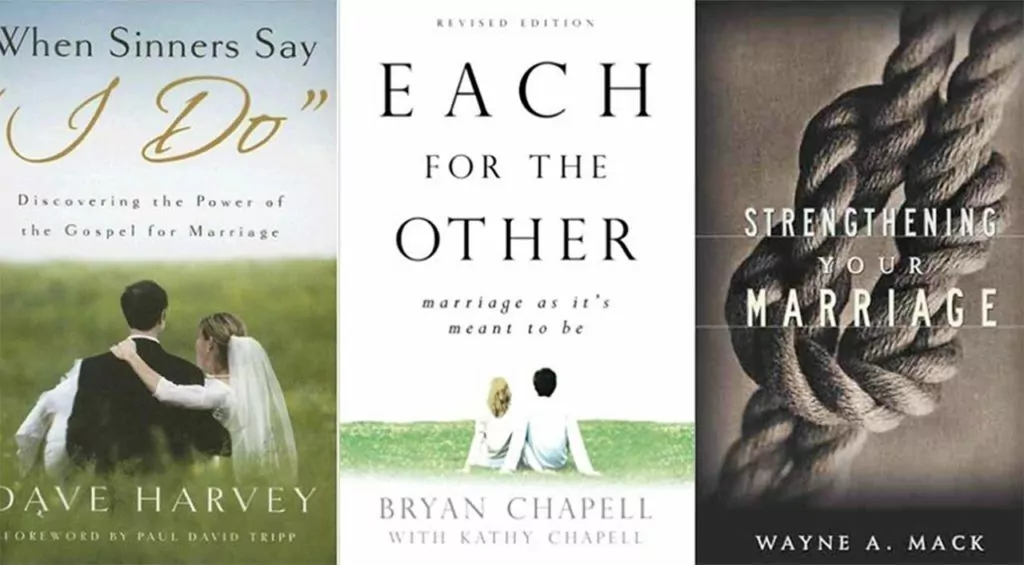The high cost of fatherhood: being a blessing to your children is hard work
Sociologists and politicians on the right of the political spectrum often tell us that one of the biggest problems facing society is the lack of fathers. Very often they will present the problem merely in terms of sheer numbers and statistics:
“The number of households where there is no father present has risen from X to Y in 40 years.”
“The number of teens with their parents still married is now just X, compared to Y just 30 years ago.”
“Children who grow up in homes with a mom and dad are X times more likely to get better grades than those children who grow up in homes where this is not the case.”
These sorts of things are perfectly true and valid. It’s perfectly true that there has been a massive increase in fatherlessness and that this has had devastating consequences for children, families, and society as a whole. It’s perfectly true that the explosion in the divorce rate over the last half century has sown a vast number of problems which are perhaps only just coming to fruition.
Not simply a matter of more, but better
However, there is a danger with this kind of statistical approach that can lead us to believe that the problem is simply one of a lack of fathers. Or to put it another way, we can come to see the problem of fatherlessness as simply a quantitative problem – lack of fathers – and then tend to see the solutions in the same terms – more fathers needed.
Yet much as the quantitative side of the fatherlessness problem is true, it is not the be-all-and-end-all of the issue and in fact it only really scratches the surface of the fatherhood problem.
In addition to the quantitative issue of fatherhood, there is also a qualitative issue that often seems to pass conservative analysts by. Of course a father is better than no father (unless of course the father in question is actively abusing his children, in which case the child will be better off in a home where he is not present), but there is more to it than this and we ought not to suppose that fatherlessness, per se, is the only problem that needs solving. Rather, there is also a much deeper issue of what fatherhood actually is.
Here’s another way of looking at it. You will no doubt have heard politicians and employers bemoan the fact that there is a skills gap in the workforce. Often, it will be in areas such as engineering, and they will claim that we need X amount of engineers to fix the engineering skills gap. No doubt we do need more engineers, but the question that rarely gets asked is “which type of engineers do we need?” In other words, although there may be a shortage of engineers in the workforce, if we were to train up masses of civil engineers in a region, only to find that the real needs of that regional economy are actually for chemical engineers, we wouldn’t have solved the problem. A similar principle is true in the realm of fatherhood. The problem isn’t just one of a lack of fathers in homes – crucial as this is – rather, it is also about the type of fathers we have.
I think it almost certainly the case that one of the many reasons we now have an epidemic of fatherlessness is that back in the day, when fatherlessness was not the problem it now is, many fathers failed to grasp what fatherhood should really look like. Certainly most men grasped that being a father meant providing for their family and protecting their family – which is well and good – but unfortunately many men didn’t go beyond a superficial interpretation of what this means.
Failing fathers and feminism
While children are the obvious victims of fatherlessness the damage isn’t limited to them. Their children’s mothers, and women in general, are also hurt when men won’t take up their role as family head.
Now, I have no desire whatsoever to defend feminism. It is an unbiblical ideology, “liberating” men from their responsibilities as the heads of their families. Yet it must be recognized that its success did not appear out of a vacuum. It came from somewhere. Where? Many answers might be given, and the role of Government and Big Business – with their promises of a better, more fulfilling life for women via career success – are certainly well worth a study or two in themselves. But behind all this, feminist ideology is at heart basically parasitical, feeding on the discontent of women. Where does this discontent stem from? Unfortunately, much of it grew out of the failure of many – perhaps even most – men to fulfill their roles as husbands and fathers, above and beyond the basics of providing and protecting.
As a general rule – and I do emphasize the word general – a woman who has a self-sacrificial husband who loves, devotes, and really gives himself to their children, is not going to be discontented enough with her lot to want to embrace an ideology that sees marriage and motherhood as a curse. Yes, there might be exceptions, but they will be rare. As I say, none of this is to defend feminism one iota, but it is simply to recognize that it has its origins in something, and that something is to a large extent due to the failure of men.
Don’t look to the government
All this is to say that simply fixing the numbers – upping the number of fathers – if that were possible, won’t work… although of course it would be way better than the train wreck we have now. Nor is there any no point in looking to government solutions to fix fatherlessness either. The State is both parasite and host in all this, feeding off the discontent of women to grow fatter and fatter.
One way the State has done this is by embracing egalitarianism, and aggressively promoting it everywhere. So they talk about a glass ceiling in the workplace. They continually pump out statistics on men getting paid more than women, without ever being honest enough to bring the word "baby" into the conversation. On a more general level, they have legislated for no-fault divorce, the very existence of which is bound to lead to people allowing their discontent to drive them to divorce, rather than seeking to address it.
All these things have helped to create a situation where women are no longer content with raising their own children. They want another life. And when this causes them difficulties or problems, who comes riding in on the white stallion again? Why the State, with it's promises of free childcare.
I should add that I am in no way blaming the State for everything. The other big culprits are Big Business, Media and Advertising. But it is the State we turn to for solutions, and we need to understand why there will be none coming from that direction. They have no motivation – they sow discontentment among women, and then reap the reward of more taxes and more control of our day-to-day lives.
The high cost
So State is not the solution. The real answer is to be found on the micro level and it involves every father out there striving every day to become a better father. It involves every father out there not contenting himself with being merely provider and protector on some superficial level, but rather having a deep desire to bless his children through his words, his character, and his way of living each and every day. It involves every father out there striving to understand what God – the Father – is like and through His grace striving to reflect this towards his children.
To extend the last point, Doug Wilson has brilliantly argued that all fathers are images or reflections of God the Father to their children. Each and every father is constantly speaking to his children through his words, character and behavior about what fathers are like, and thus are constantly teaching their children about the Father all the time. So, in the way he acts, a father will either be speaking the truth or telling a lie to his children about the Father.
That’s a challenging mirror for those of us who are fathers to look into. Of course we are not going to see perfection, but are we telling the truth about God the Father in our life towards our children, or are we telling a lie? Are we telling the truth about the Father by reflecting His generous, benevolent, loving, forgiving, just, merciful, gracious nature?
Or are we teaching our children a lie about the Father through our harshness, our indifference, our aloofness, our coldness or our absence?
We could put it this way: True Fatherhood is costly. The cost of God’s mercy and love being shown to His children was the death of His only begotten Son at Calvary. If you are a father, how much does fatherhood cost you? Generosity, benevolence, love, forgiveness, mercy and grace are far costlier than harshness, indifference, aloofness, coldness or absence. They require daily prayer and struggle against sin. They require humbling ourselves to say sorry to our children when we’ve wronged them. They require listening patiently to them and taking pleasure in what for us may seem trivial, but what for them are really important. And a whole lot more.
I don’t know about the fathers who are reading this, but I struggle with these things. They are not easy requirements for a sinful and selfish human being. Yet they are part of a struggle that all fathers should delight to be in the midst of, since victory in this struggle means blessing to your children. And if enough fathers engage in the struggle, ultimately it will bring blessing to our society too.
Paul on engaged fathers
The Apostle Paul has the uncanny ability to pack more into one sentence than most of us can pack into several thousand words. How does he instruct fathers to behave towards their children?
Fathers, do not provoke your children to anger, but bring them up in the discipline and instruction of the Lord (Ephesians 6:4).
Is that it Paul? Is that all you have to say to fathers? Don’t make our kids angry and bring them up in God’s ways? Not really. Paul’s one-liners are like the opening of a treasure cave and we need to dig deep if we are to get to the heart of his teaching and mine the gold.
As he often does, Paul begins with a negative, moves it to a neutral, and then takes the whole thing over to a positive. An example of this is Ephesians 4:28 where he says this:
Let the thief no longer steal, but rather let him labor, doing honest work with his own hands, so that he may have something to share with anyone in need.
Imagine a dial with three markings. On the left hand side is stealing. In the middle is not stealing. And over on the right hand side is laboring to give. Moralistic Christianity only sees the need to turn the dial from the left to the middle. “Don’t do this,” and “Don’t do that.” As if the absence of stealing is all that is required. But Paul says no, that’s not all that’s required. God doesn’t just want “non-stealers”; He wants cheerful givers.
Paul does the same with the father passage. The notch on the left is marked Provoking, Exasperating, Frustrating, Angering your children. And there’s a whole range of different ways that this can be done. Paul says to turn the dial. Where to? To the “no longer provoking, exasperating and angering my children” spot in the middle? No, he says, dial it all the way to the right hand side. So just as the antidote to stealing is not “not-stealing” but rather giving, the antidote to provoking our children is not “not provoking our children,” but rather nurturing and admonishing them (some versions have this as training/discipling and instruction/correction, but the sense is roughly the same).
Berating vs. admonishing
What might sound odd here is that having turned the dial from the negative notch – provoking to wrath – to the positive notch, we find Paul speaking of admonition (or correction). But isn’t admonishing (or correcting) a negative action?
Of course it can be, and I’m sure we can all think of examples of ways fathers can rebuke their children in a wholly negative manner (if you’re anything like me, you will have done this yourself). And if such a way of rebuking becomes the norm, then it can clearly lead to exactly what Paul tells us to avoid – exasperating and provoking our children to wrath.
So how can admonition or correction be positive? It’s surely a question of why we do it and how we do it. If our whole wholehearted desire is to see our children corrected and restored, and if we deliver the admonition or correction in a way that reflects that, then it is an undoubtedly positive thing and our children will generally respond positively to it.
What does nurturing look like?
What of nurturing? That has a more positive ring to it than admonition, but what does it mean? Perhaps an illustration might help. At a home education co-op recently, some of my children and their friends did an experiment where they put six different seeds into six different jars, subjecting each seed to different conditions. The first was given air, water, soil, light and warmth, whilst the others had one of these elements missing. Some didn’t grow at all. Others grew a little, but very weak and stunted. No prizes for guessing which one grew properly!
Just as the nurturing of plants needs all the elements in order to grow properly, so too do our children. And just as the seed that is deprived of one or more of the elements will either not grow at all, or perhaps produce stunted growth, so is the case with our children. Although I don’t want to labor the analogy too much, there is a fairly close correspondence to some of the elements that are needed for the seed to grow, and that which we need to be nurturing our children with. For instance, it is possible to give them the light of God’s word, both in the home and at church, and think that this will suffice. But if the environment at home or in the church is frigid, or if we so stifle their characters, gifts and creativity that they feel suffocated, they may well come to despise the teaching. There are countless “testimonies” out there of people who have gone through that.
Nurturing is about making sure our children have all the elements they need to so that they thrive and grow up into men and women who really love God and who have a genuinely loving, servant spirit. So we need to aim not just to teach them from God’s Word, but to do so in an environment that is warm and wholesome. We need to produce a home where Christ is honored, both in teaching and example, but we need to do so making sure that we do not stifle our children or place heavy burdens on them. They need air to thrive, and I’ve seen a good many people reject the faith of their parents chiefly because their parents tried to squeeze them into a particular mold of what they thought Christians ought to look like.
Fathers, can I urge you to strive to get closer to your children? Cuddle them more (especially girls). They need to feel wanted and secure, even the ones that don’t communicate this very well. Talk to them more. Be interested in them and their lives. Speak kindly to them and well of them. Get rid of any hindrances in your life which might be a stumbling block for them, or which might breed resentment and create a distance between you and your children. Strive to teach them from God’s Word, both by words and example. Seek their forgiveness, not just God’s if you have wronged them, or shouted at them, or failed them. Make them know that you would give your life for them. Fill your home with love and with grace.
When we fail…
Having said that, the wind seems to be taken out of my sails somewhat. Thinking of what nurture and admonition ought to look like is one thing, but if your house is anything like mine, the reality is often a far cry. Occasionally I might approximate to some of these things, but there are too many times of miserable failure to recall. What then?
The things I have listed above are hard things which require self-sacrifice, determination and above all the Spirit of God. We are bound to mess up; bound to fail. But this should make us press on, not give up. Christianity is not a religion of beating ourselves up over such failures. Rather, it is a religion which says get down on your knees, seek God’s free and full forgiveness through Jesus, and then ask for his Spirit to enable you to be a better father to your children.
Fatherhood is the most important social issue of our day, and the lack of good fathers is behind so much of what has gone wrong in our society. So if you don’t already, will you join me in making it a regular prayer to pray for fathers? Pray that every child in the land would know their father throughout their childhood. Pray for every child to know the love and the warmth of a good father. Pray for fathers in your church to be enabled to lead their families, and to “nurture and admonish their children in the Lord” with love and grace. Pray for good fathers to become better fathers. Pray for absent or poor fathers to repent and be given God’s grace to succeed where they have previously failed. And above all pray that God would reform our churches, our communities and our society by turning the hearts of the fathers to the children and the hearts of the children to the fathers.
Rob Slane is the author of A Christian and Unbeliever discuss Life, the Universe, and Everything....































